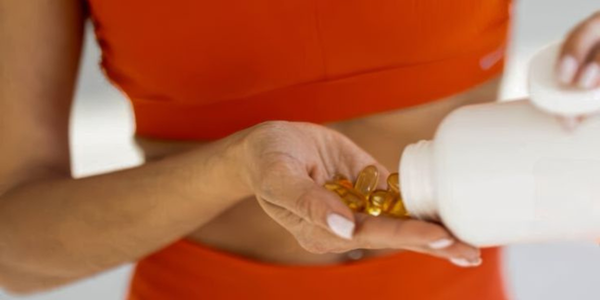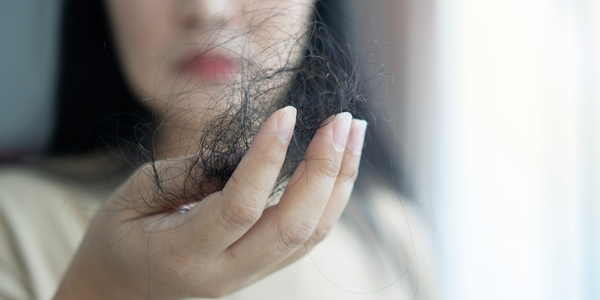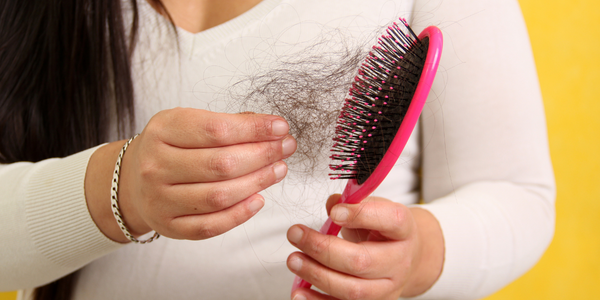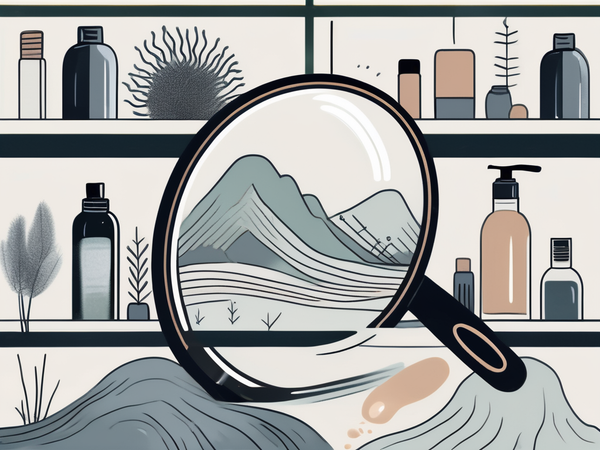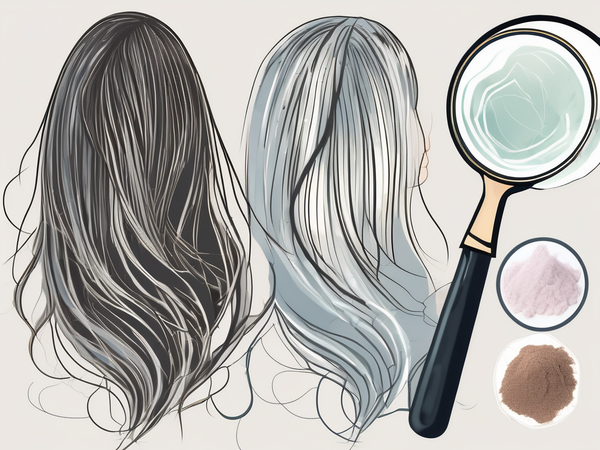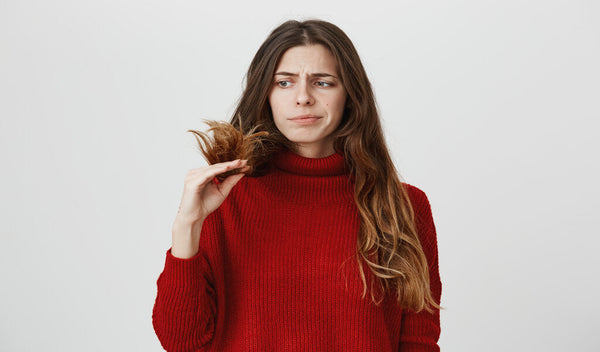Hair loss can be catastrophic, but if you think your hair might be thinning and breaking then you are not alone. Most people lose 50 to 100 hairs per day as part of this natural cycle, more on days you wash your hair.
Alopecia is the medical term for hair loss and is a common condition in India. There are causes of hair fall in differs in individuals and stress, poor diet, and underlying medical conditions are few of the causes.
And if you know the cause, you can possibly slow or even completely treat this condition. Want to know what are the common causes of hair fall? Read along.
This blog talks about five sneaky causes of hair fall and along with corresponding solutions. This way, you can both find the cause of hair fall and deal with the same.
Top 5 Common Causes of Hair Fall
1. Genetic Factors
Androgenetic Alopecia is a common hair loss type that is caused due to genetics. It is hereditary and depends on the age of the person. Women may notice subtle hair thinning and hair loss, while men may go through major hair loss.
For males, this type of hair loss often starts at the temples and expands to the top of the scalp. There may also be a little thinning at the top of the head. For females, it usually first becomes noticeable where you divide your hair, but there’s gradual thinning all over. The hairline typically stays the same, but the hair part can widen.
Usually, it starts during the fourth or sixth decades of life but can even occur earlier in the twenties, which is devastating and depressing.
How to Treat It?
While there is no solid treatment to treat genetic hair fall, there are things you can do for hair fall control or to slow down the hair fall process.
A healthy and nutritional diet is one of the most important things you can do to prevent hair fall. You can also go for oral medicines, topical lotions, or nutritional supplements prescribed by your doctor. Apart from that, there are treatments like hair transplantation or wearing wigs or hairpieces.
2. Medications
Medications to treat several health conditions such as thyroid, pregnancy, menopause, PCOD, PCOS, diabetes, and blood pressure can often impact your body which in turn impacts the health of hair follicles leading to eventual hair fall.
Also, birth control pills and steroids are known to cause hair loss in several individuals.
How to Treat It?
Remember, do not stop taking the medications you are already on, and do not start with any new medicine without the doctor’s prescription and consultation. Most of the time, the hair fall you experience due to medication is temporary. But if it becomes chronic, you can ask your doctor to change your medication accordingly.
3. Physical and Emotional Trauma or Stress
Whenever a big event takes place in your life that impacts your mental or emotional health, like divorce, job loss, death of a loved one, or anything that means a lot to you, you might experience hair loss or lack of hair growth due to Telogen effluvium.
Telogen effluvium is triggered when physiologic stress causes a large number of hairs in the growing phase of the hair cycle (anagen) to abruptly enter the resting phase (telogen).
Excess hair shedding starts 2 to 3 months after a stressful physical or emotional event and peaks about 4 to 5 months later.
Over time, your body readjusts and the hair gradually stops falling out. Within 6 to 9 months, things go back to normal.
Also, if you went through a physical trauma like a car accident, surgery, or illness, you might notice temporary hair loss.
How to Treat It?
Usually, hair fall due to stress of any type is temporary. It stops with time. But if it bothers you a lot, you contact your dermatologist. You can also ask them to build a hair care regimen for you that will make your hair look fuller, healthier, thicker, and voluminous.
Also, a diet rich in micronutrients like iron, zinc, magnesium along with B-vitamins can speed up the recovery process. And lifestyle modifications including yoga, meditation, spa is vital for your hair and mental health.
4. Excessive Use of Hair Products & Excessive Hair Styling
Trichorrhexis nodosa is a term for a condition of the hair when there are points in the hair that are weak and pointed, leading to excessive hair loss. The cause of this condition is over-styling, excessive use of hair bleaches, electric hair styling tools, harsh chemicals, and aggressive brushing of the hair. These things can damage your hair permanently, which means your hair will not grow back anymore.
How to Treat It?
A simple treatment for such issues is to avoid harsh hair treatments and use soothing and hydrating products. These products will improve the condition of your hair. You must also brush your hair gently and use brushes with soft bristles that do not hurt your hair follicles.
5. Lack Of Essential Nutrients in Diet
Nutritional deficiencies cause tonnes of health issues, be it lack of immunity, body pain, poor brain health, including hair fall. Having low levels of protein, iron, zinc, Vitamin D, etc., can aggravate hair thinning, breakage, or patches of baldness. Collagen a type of protein, is responsible for maintaining healthy hair, skin and nail health.
How to Treat It?
Remember, your hair is what you eat. So, make sure you consume healthy food that complements your hair health. Your hair and nails are made of a protein known as Keratin. Protein deficiency will affect your immunity as well your hair, skin and nail health. Make sure your diet has enough protein. A lack of protein will make it difficult to make new hair in place of the hair that has been shed.
Boost the protein and micronutrient intake by consuming protein supplement and multivitamin melts to nourish your hair and scalp health and control hair loss.
What is Melts Hair Fall Control, and How Can It Help?
Melts Hair Fall Control is a fast acting and 100% plant-based solution for your hair fall problems. It consists of clinically proven Keranat™ , which has proven effective for hair fall, and Miliacin, which promotes cell multiplication in the hair bulb, restoring the health of your hair and increasing the hair growth frequency.
It is a 6 in1 formulation with Zinc, Virgin Coconut Oil, Selenium, Iron, and Indian gooseberry. All of these are potent ingredients known to speed up the hair growth process. The Melts come in a delicious strawberry flavor and dissolve within seconds of placing on your tongue.
You can also opt for some reliable dietary supplements from Wellbeing Nutrition such as Melts Hair Fall Control , Superfood plant protein and beauty collagen that will offer complete nutrition to your body and ensure good hair health.
Wrapping
Your genetics, diet, the styling products you use, and the medicines you consume all contribute to hair fall in one way or another. However, if you stay cautious, i.e., take a healthy diet, consume supplements such as Melts Hair Fall Control, reduce the use of hair styling products and consume medications without side effects, you can reduce hair fall and ensure good hair health over time.
References
-
Al Aboud AM, Zito PM. Alopecia. [Updated 2022 Apr 30]. In: StatPearls [Internet]. Treasure Island (FL): StatPearls Publishing; 2022 Jan-. Available from: https://www.ncbi.nlm.nih.gov/books/NBK538178/
-
Ho CH, Sood T, Zito PM. Androgenetic Alopecia. [Updated 2021 Nov 15]. In: StatPearls [Internet]. Treasure Island (FL): StatPearls Publishing; 2022 Jan-. Available from: https://www.ncbi.nlm.nih.gov/books/NBK430924/
-
Prasad S, De Souza B, Burns LJ, Lippincott M, Senna MM. Polycystic ovary syndrome in patients with hair thinning. J Am Acad Dermatol. 2020 Jul;83(1):260-261. doi: 10.1016/j.jaad.2020.01.075. Epub 2020 May 20. PMID: 32444272; PMCID: PMC8291365. https://www.ncbi.nlm.nih.gov/pmc/articles/PMC8291365/
-
Guo EL, Katta R. Diet and hair loss: effects of nutrient deficiency and supplement use. Dermatol Pract Concept. 2017 Jan 31;7(1):1-10. doi: 10.5826/dpc.0701a01. PMID: 28243487; PMCID: PMC5315033. https://www.ncbi.nlm.nih.gov/pmc/articles/PMC5315033/
-
Peters EMJ, Müller Y, Snaga W, Fliege H, Reißhauer A, Schmidt-Rose T, Max H, Schweiger D, Rose M, Kruse J. Hair and stress: A pilot study of hair and cytokine balance alteration in healthy young women under major exam stress. PLoS One. 2017 Apr 19;12(4):e0175904. doi: 10.1371/journal.pone.0175904. PMID: 28423056; PMCID: PMC5397031. https://www.ncbi.nlm.nih.gov/pmc/articles/PMC5397031/
-
Hair loss and contraceptives. Br Med J. 1973 Jun 2;2(5865):499-500. PMID: 4736624; PMCID: PMC1589552. https://pubmed.ncbi.nlm.nih.gov/4736624/
-
Qi J, Garza LA. An overview of alopecias. Cold Spring Harb Perspect Med. 2014 Mar 1;4(3):a013615. doi: 10.1101/cshperspect.a013615. PMID: 24591533; PMCID: PMC3935391. https://www.ncbi.nlm.nih.gov/pmc/articles/PMC3935391/














